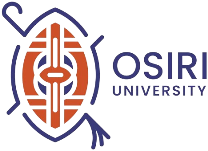ABOUT
At the Agricultural Science & Natural Resources, science is put to action to advance knowledge in agriculture, food systems and production, and natural resources. Students interested in food technology, food security, natural resource management, and related studies, will learn from experts who are knowledgeable and keen on helping students become change agents in society. Every course and interaction will push students to think outside the box and bring them closer to making a difference in their community.
DEGREE PROGRAMS
Master of Science in Food Systems and Sustainable Agriculture
Program Description
The Master of Science in Food Systems and Sustainable Agriculture (MSFSSA) will equip students with the tools, knowledge, and training to develop and manage food systems. The program considers the agricultural value chain - from farm to table - at the local, regional, and global levels. Graduates will understand the relationships and connections between planetary activities and food systems, with an emphasis on climate change, renewable resources, waste reduction, responsible sourcing, regenerative agriculture, and healthy oceans. Additionally, graduates will develop and sharpen the leadership skills essential to create change and achieve impact—from the local to the global level. Graduates will be prepared to transform food systems and use sustainable agricultural practices at the local level, in small, grassroots initiatives, and within large organizations, by influencing change up, down, and across departments. Graduates will drive reform and influence mindsets to inspire and create sustainable business models for the future. The School of Agricultural Science and Natural Science offers applicants the option to complete the full MS degree or earn a graduate certificate by taking only three courses.
Admission Requirements
Students must have a bachelor's degree or its equivalent and a command of the English Language. A bachelor’s degree in science, engineering, or a related field is preferred.
Program Courses
Completing the MSFSSA degree program requires taking 30 credit hours of course work including six (6) credit hours of a research thesis. The MSFSSA is comprised of a set of required graduate courses and two areas of concentration: (i) Food Product Development and (ii) Certificate in Food Security and Sustainability. As a bonus, students will automatically earn a Certificate in Food Product Development and a Certificate in Food Security and Sustainability on their journey toward completing their MSFSSA. With the exception of ASNR 500 and ASNR 580, which are 6 credits each and 8 weeks long, all the program courses are 3 credits and 5 weeks long. The MSFSSA is designed as a two-year program but can be completed in one year, as shown below.
COURSES
Spring
Session 1
ASNR 510 Food Safety and Preservation
Session 2
ASNR 520 Food Product Development
Session 3
ASNR 530 Food Materials and Processing Operations
Summer
Session 1
ASNR 500 Research Thesis (6 credits, 8 weeks) or ASNR 580 Practicum (6 credits, 8 weeks)
BUSA 560 Sustainable Entrepreneurship and Leadership
Session 2
HUMA 570 Human Knowledge, Philosophy and Ethics
Fall
Session 1
ASNR 540 Food Sustainability and Security
Session 2
ASNR 550 Global Challenges in Food and Agriculture
Session 3
ASNR 560 Managing Agriculture in a Changing Global Climate
CERTIFICATES
- ASNR 510 Food Safety and Preservation
- ASNR 520 Food Product Development
- ASNR 530 Food Materials and Processing Operations
- ASNR 540 Food Sustainability and Security
- ASNR 550 Global Challenges in Food and Agriculture
- ASNR 560 Managing Agriculture in a Changing Global Climate

